Reading Skills Normal Alphabet Worksheets for Ages 4-6
12 filtered results
-
From - To
Enhance your child's reading skills with our engaging Reading Skills Normal Alphabet Worksheets, designed specifically for ages 4-6. These worksheets focus on helping young learners recognize letters, associate sounds, and develop early reading abilities through fun activities. Each printable sheet incorporates vibrant illustrations and interactive exercises to make learning enjoyable and effective. Perfect for preschool and early elementary students, our resources foster a love for reading while building essential foundational skills. Easy to use at home or in the classroom, these worksheets are an excellent way to encourage practice and enhance literacy development. Start your literacy journey today!
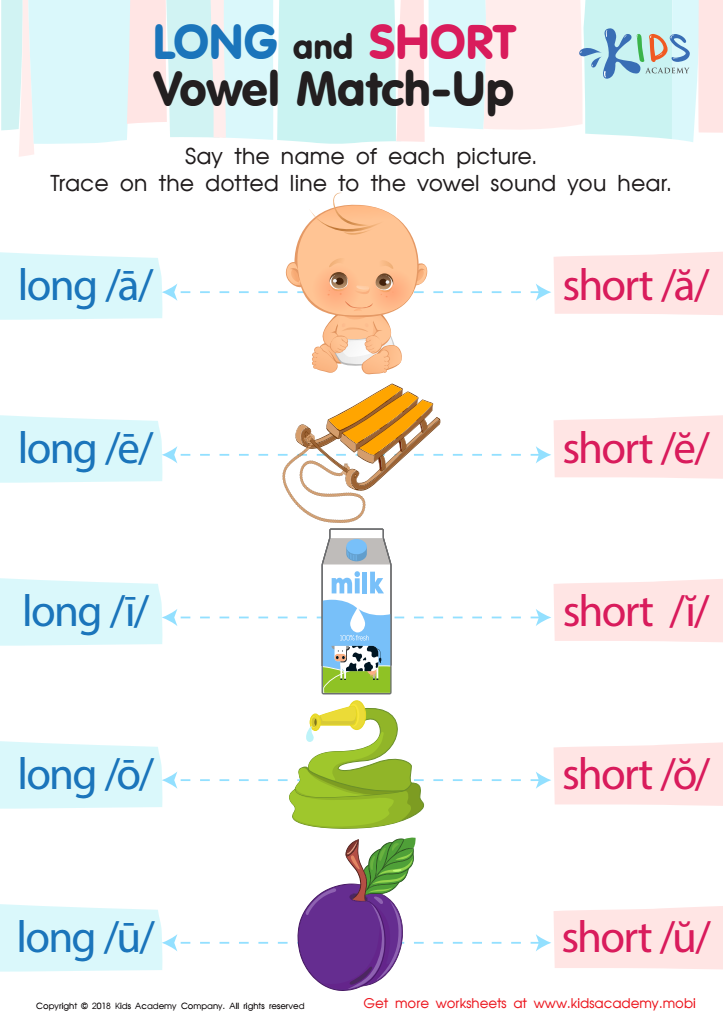

Long and Short Vowel Match up Reading Worksheet
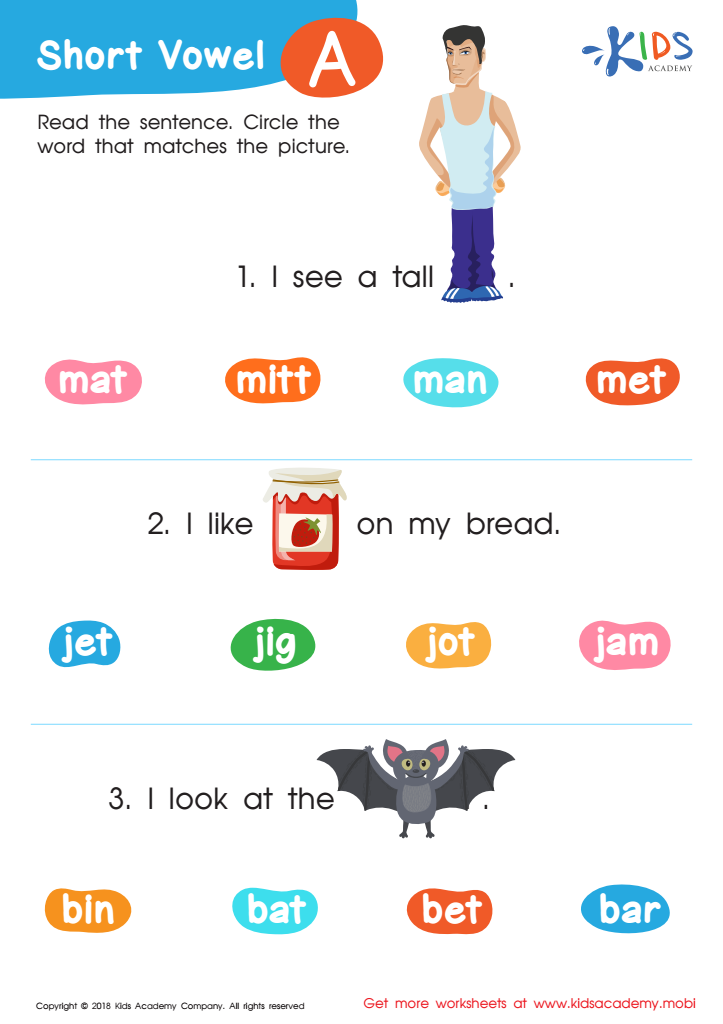

Short Vowel /a/ Worksheet
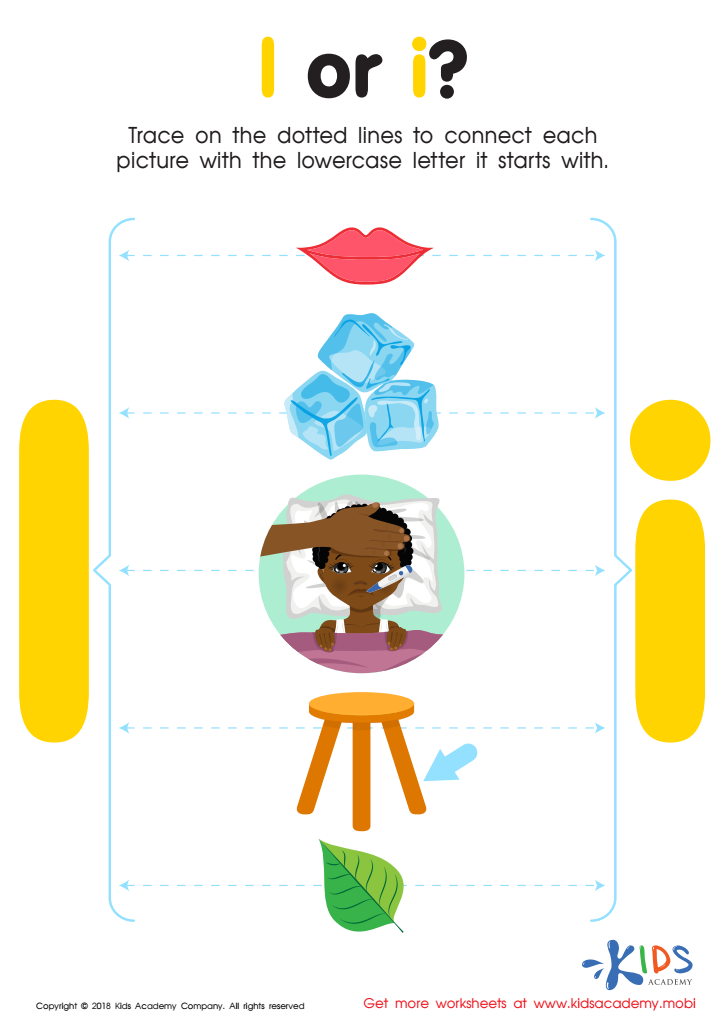

l or i? Worksheet
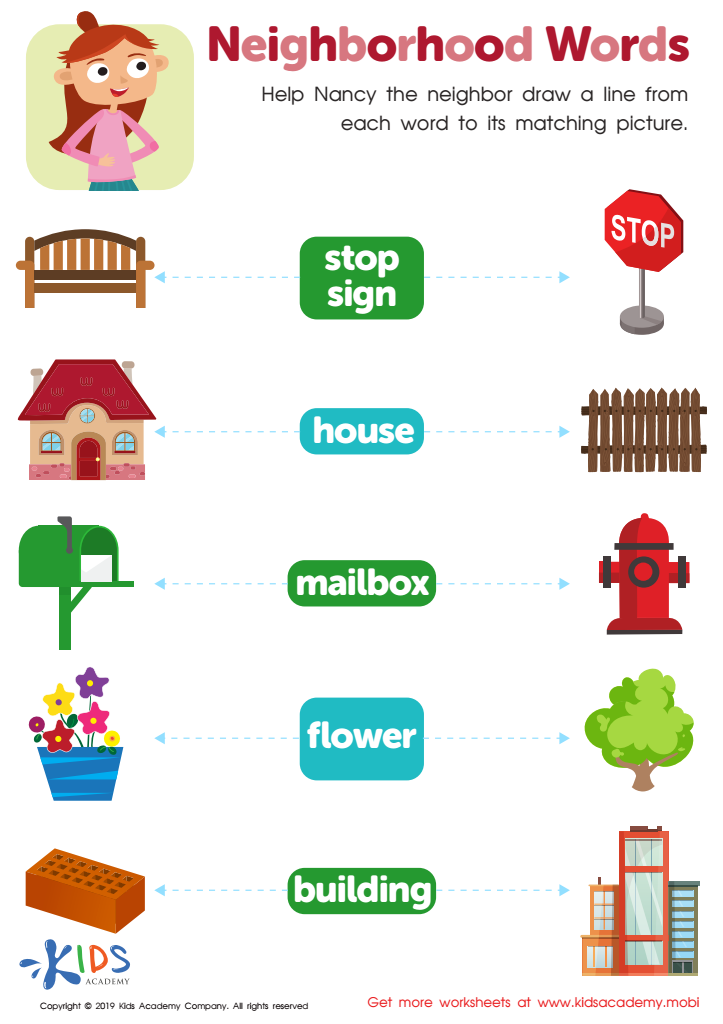

Neighborhood Words Worksheet


Twin Onset Worksheet
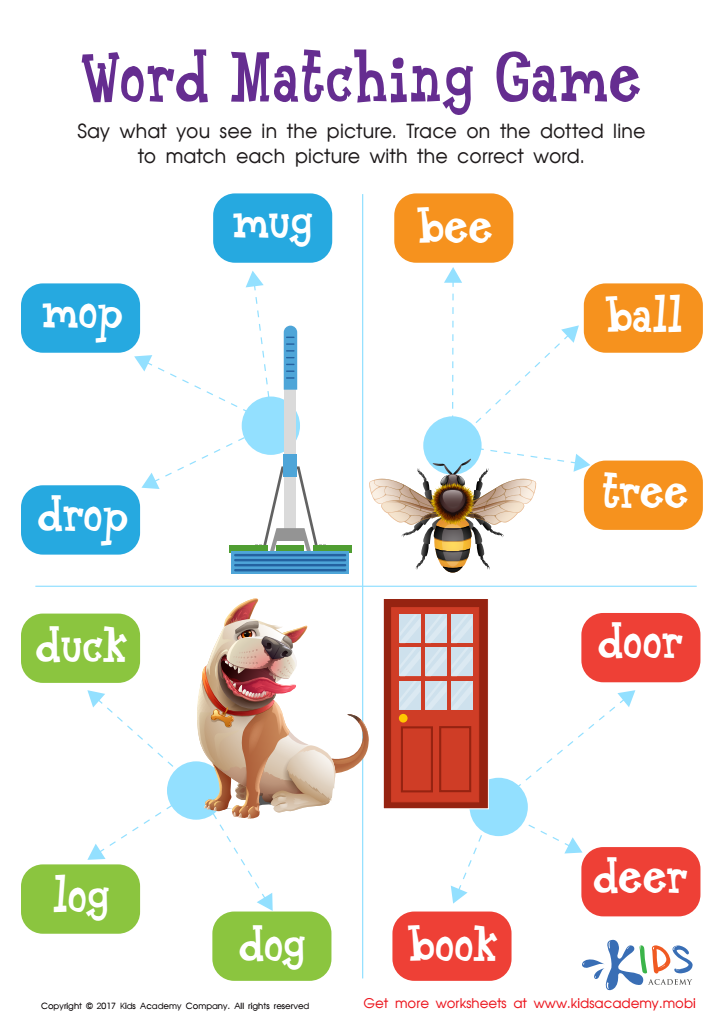

Word Matching Game Worksheet


Short Vowel Eggs Worksheet
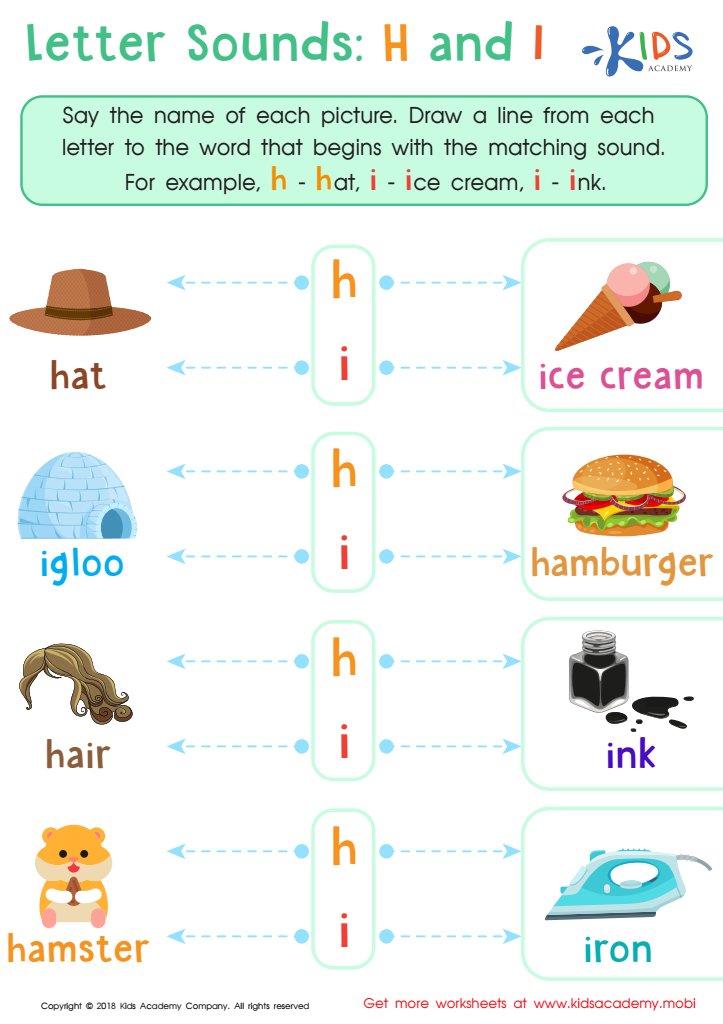

Letter H and I Sounds Worksheet
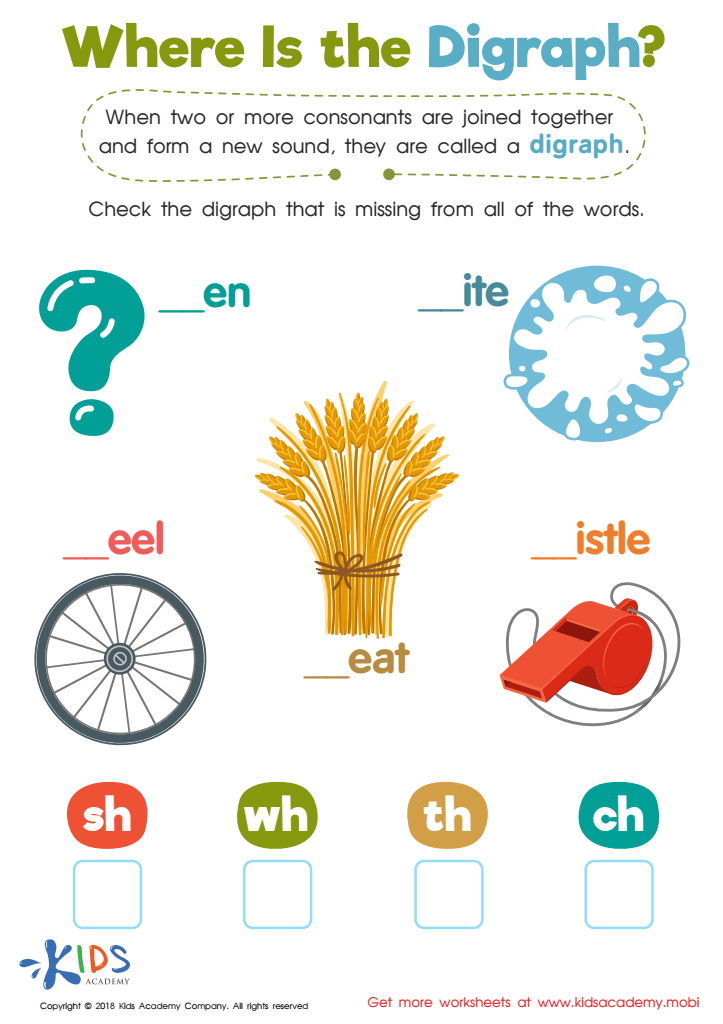

Where Is the Digraph? Worksheet
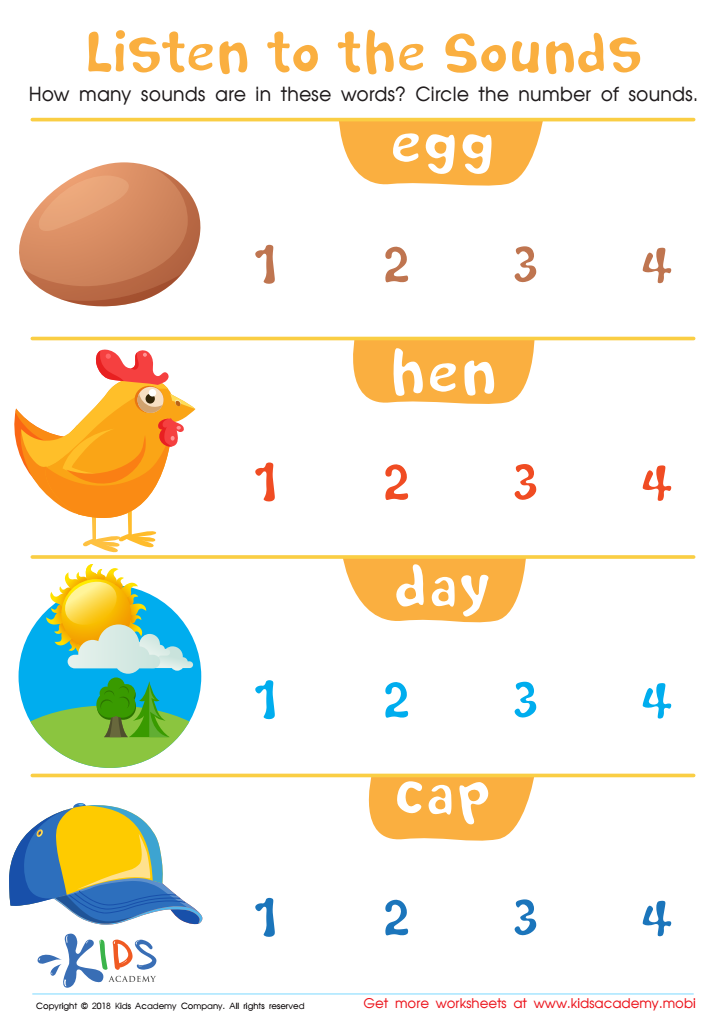

Listen to the Sounds Worksheet


Words with sound f Reading Worksheet
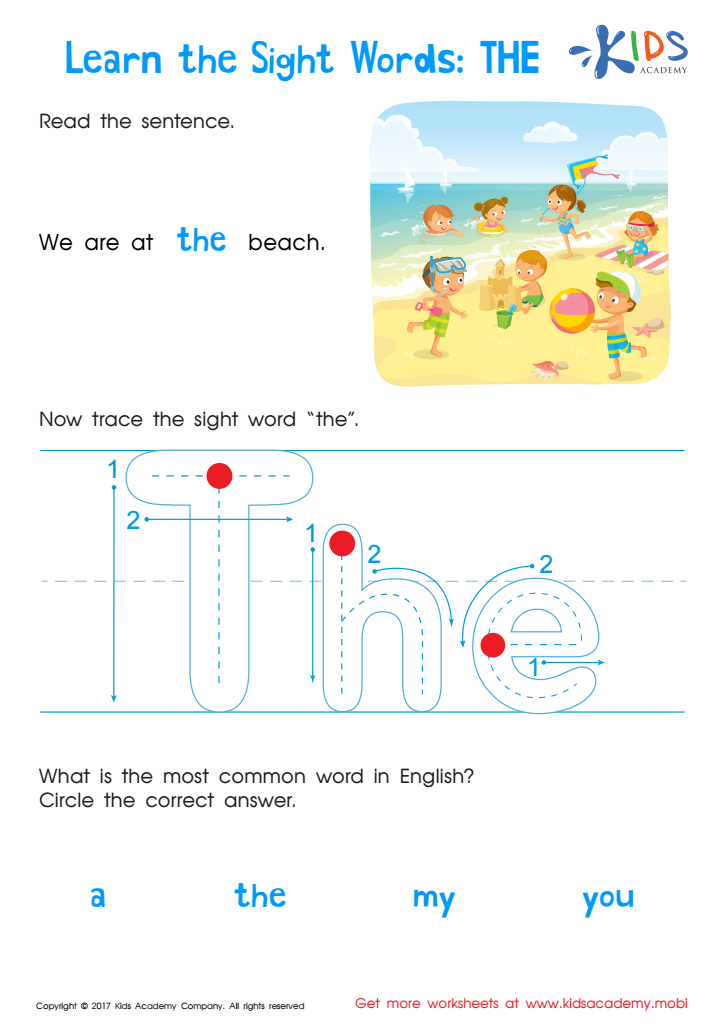

Sight Words: The Worksheet
Parents and teachers should prioritize teaching and developing reading skills, including understanding the normal alphabet, for children ages 4-6 because these foundational skills are crucial for literacy development and overall academic success. During this critical development stage, children learn the building blocks of language, which include recognizing letters, understanding vowel and consonant sounds, and beginning to create words.
Early exposure to reading skills helps children develop phonemic awareness, which is essential for reading fluency. Learning the alphabet also strengthens cognitive skills, fostering better memory retention and attention span. Children who grasp these skills early are better prepared for future learning challenges and exhibit increased confidence when engaging with reading materials.
Moreover, strong reading skills play a significant role in enhancing vocabulary and comprehension, promoting effective communication in various facets of life. An appreciation for reading cultivated in these early years can lead to a lifelong love for literature and learning. As such, parents and teachers not only support academic achievement but also encourage curiosity and creativity in children. By focusing on reading skills and the normal alphabet during ages 4-6, adults provide children with essential tools for success in school and beyond.

 Assign to My Students
Assign to My Students

















